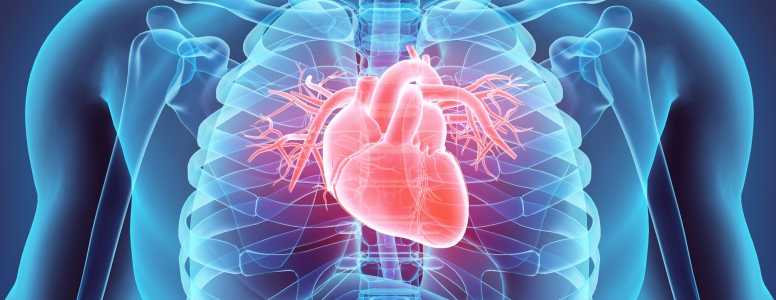When the heart stops pumping blood, a severe problem occurs called congestive heart failure.
Heart failure signifies that the heart muscles have become less capable of contracting over time. Not enough oxygen-rich blood can reach the other organs. Blood tends to come back to the heart faster, resulting in congestion.
Several congestive heart failure treatments have come up in recent years.
Symptoms
● Congestion in the lungs: Fluid gets stored in the lungs due to a shortage of blood circulation.
● Fatigue and dizziness: The reduction in blood amount reaching the organs causes weakness, dizziness, and fatigue.
● Rapid heartbeats: The heart pumps rapidly to resist the lower amount of blood it pumps out.
● Fluid retention: Fluid retention can occur due to a blood shortage in the kidneys.
Causes
● Coronary Artery Disease
● Smoking
● Cardiomyopathy
● Heart Attack
Treatment
The latest trends in congestive heart failure treatment have successfully saved a lot of lives. The disease does not get better with time. The New York Heart Association has clinically divided heart failure into four stages. These are:
1. Stage A:
This stage is called the “pre-heart failure” stage. Individuals have a high chance of contracting the disease.
They may have one of the following medical conditions:-
➔ Diabetes
➔ Genetic history of cardiomyopathy
➔ Hypertension
➔ Metabolic syndrome
The treatment plan for Stage A patients is listed below:
➢ Patients with high cholesterol need to be treated
➢ Individuals have to keep a check on their diet and exercise regularly
➢ Avoid drinking and smoking
➢ Medication
2. Stage B
The individuals have been discovered with systolic left ventricular dysfunction in this stage. Most of them have been diagnosed with an echocardiogram showcasing 40% or minor ejection fraction.
The treatment of Stage B patients are listed below:-
➢ Aldosterone antagonist, if you have suffered a heart attack
➢ Angiotensin-converting enzyme inhibitor
➢ Beta-blocker
➢ Surgery, if you have had a heart attack or artery blockage
➢ Follow the treatments of Stage A
3. Stage C
These individuals have recently suffered a heart attack or been diagnosed with heart failure symptoms.
The patients have a lot of trouble carrying out their daily activities.
The treatment of Stage C patients are listed below:
➢ Beta-blocker to help the muscles of the heart pump faster
➢ Aldosterone antagonist
➢ Diuretic
➢ Sodium should be restricted in diet
➢ Nitrate or hydralazine combination
➢ Implanted cardiac defibrillator therapy
➢ Use of biventricular pacemaker
➢ Follow the treatment points of Stage A and B
4. Stage D
This is the last stage of congestive heart failure. Here the patient has advanced symptoms.
The treatment for patients with Stage D heart failure is listed below:
➢ Ventricular assist devices
➢ Heart surgery
➢ Infusion of intravenous inotropic drugs
➢ Heart transplant
Medication
The medication involved in congestive heart failure treatment are as follows:
❖ Angiotensin-converting enzyme (ACE) inhibitor: The drugs relax the blood vessels. It assists in reducing the strain on the heart and amplifying blood flow. Enalapril and captopril are examples.
❖ Beta-blockers: This helps to diminish the symptoms of heart failure. It lessens heart rate, lowers blood pressure, and ensures that patients live a long and healthy life. The examples are carvedilol and bisoprolol.
❖ Angiotensin 2 receptor blockers: This drug is for patients who cannot tolerate ACE. The examples are candesartan and losartan.
❖ Diuretics: Diuretics help patients frequently urinate to get extra fluid stored in the body.
Surgery
The latest congestive heart failure treatment trends, especially in the surgery sector, have heralded a new era. Surgery procedures include: –
● Coronary Bypass Surgery involves removing a blood vessel from the arm or leg. Then, it is connected above and below the blocked arteries in the heart.
● Heart valve replacement: A faulty heart valve may result in replacing or repairing the valve. This is carried out in open-heart surgery.
● Cardiac resynchronization therapy: It is a treatment for patients whose ventricles are not pumping in sync with each other. Biventricular pacemakers are generally used for CRT.
● Ventricular Assist Devices: This helps pump blood from the lower ventricles to the rest of the body with a support device.
● Heart Transplant: For a few, surgery and medication do not help. They need to have a heart transplant.
Bottom Line
Even after a successful surgery or taking medications, one should take proper care of their health. There has been tremendous development in congestive heart failure treatment in recent times due to advanced technology.
If you experience any of the symptoms or any discomfort in your heart, it is best to consult a doctor. Take your health seriously and eat healthy. Make sure to keep your general health in check. Keep out unnecessary stress out of your life as well.





